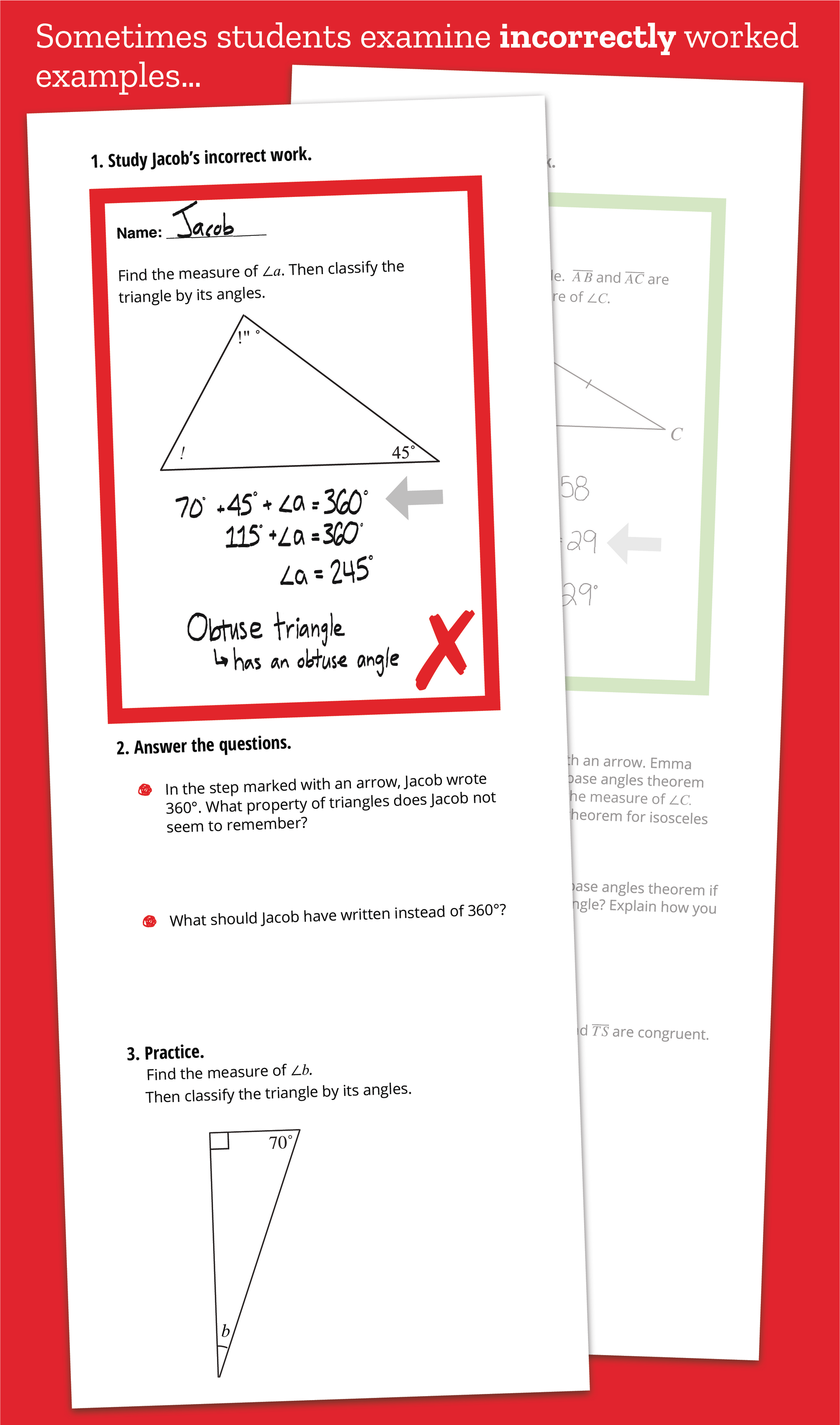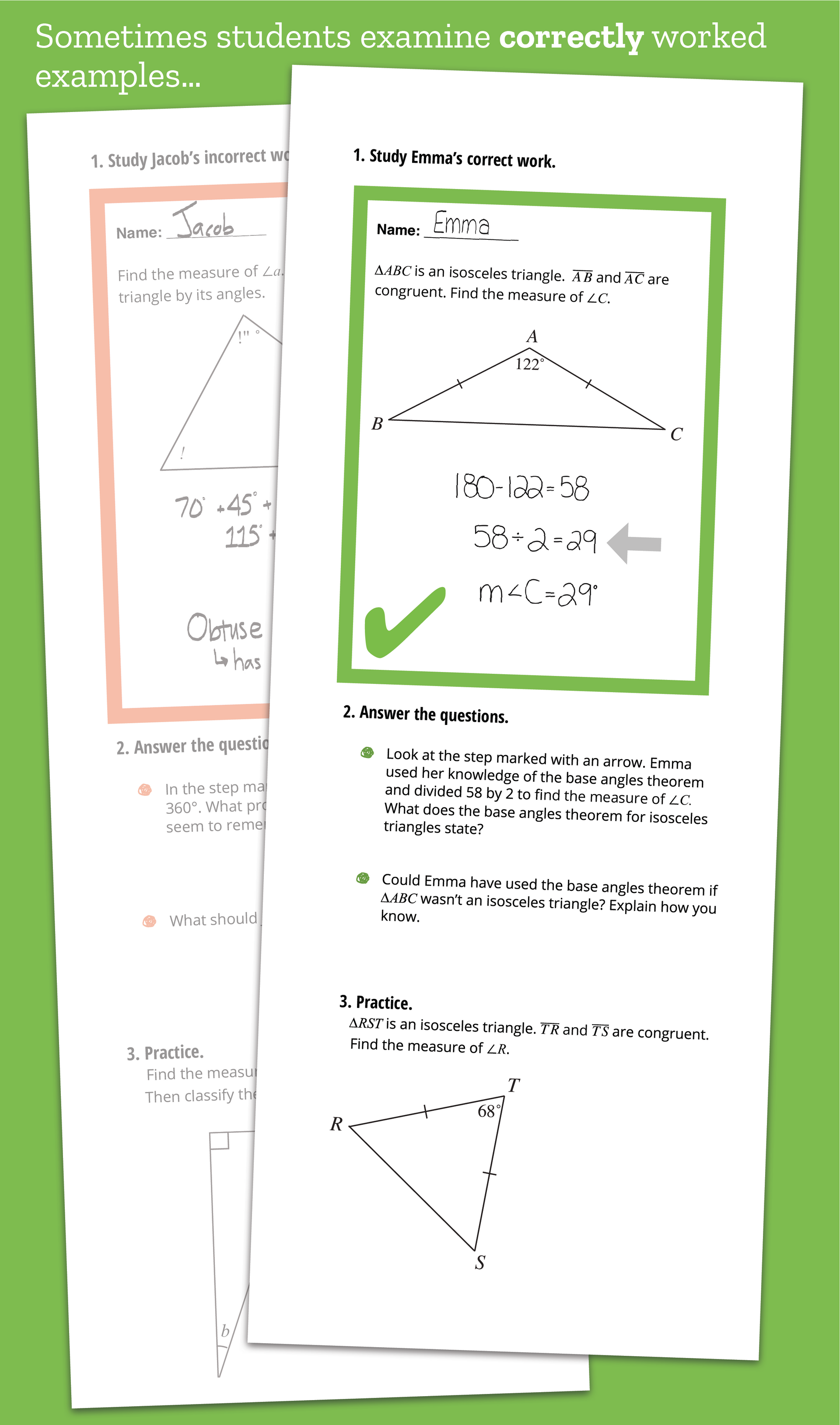Powerful Tool for Learning Geometry
Example-based sets for High School Geometry
Math teachers whose students benefited from AlgebraByExample urged SERP to develop a collection of geometry assignments using the same powerful, research-based approach.
GeometryByExample is now here!
Why do teachers like this program?
GeometryByExample is FLEXIBLE.
The assignments can be used in any order and manner and are easily integrated into routine practice with any curriculum, either to supplement or to replace other practice assignments. Regardless of district or state standards, teachers can easily select the assignments that fit their own practice.
GeometryByExample is EVIDENCE-BASED.
Prior research suggests that explaining correct and incorrect worked examples is an effective instructional technique for helping students learn mathematics (e.g, Sweller, 1999; Renkl et al. 1998; Adams et al, 2014). The SERP-Temple team applied the approach in Algebra with AlgebraByExample and then with Grades 4 and 5 with MathByExample, and results from randomized studies demonstrated improvements in student learning for both programs. Preliminary analyses are showing statistically significant results for students using the GeometryByExample materials, as well.
GeometryByExample PROMOTES DISCUSSION.
Correct and incorrect examples paired with prompts for students to explain their thinking provide launch points for mathematically rich discussion. It also provides a shared language for modeling, analyzing, critiquing and articulating mathematical arguments. Students’ answers and discussions provide teachers insights to students’ thinking.
GeometryByExample is FREE.
The assignments are freely downloadable and can be used for noncommercial purposes. Pre-printed workbooks are also available to order for your convenience. No professional development is required.
This approach is research-based + reality checked!
Students tend to make some of the same math mistakes over and over again. These repeated errors result from students' underlying misconceptions. With GeometryByExample, students study correct and incorrect examples of geometry problems and answer questions that specifically target common errors and misconceptions. These assignments do much more than just give students practice – they encourage students to think critically about the geometry concepts and procedures and to confront common misconceptions.
Within each GeometryByExample assignment, students:
- analyze correct and incorrect examples;
- explain the thinking of "other" students' work; and
- solve problems that are similar to the examples.
Testimonials from Teachers Who Used GeometryByExample
"I think the students really learned from the error analysis. I enjoyed seeing the types of errors that were included. On a review day before the coordinate geometry test, I used 2 of the activities as part of the test review and I thought that was a great way to use them."
“I think the problems /assignments are great. I find it very valuable to have students analyze other student work (correct and incorrect). I think it really builds greater understanding of content and helps students get better at explaining their thinking and understanding.”
“The way that I used them, as a warm-up, really helped students to get focused and on task for the class period.”
Background:
Development of GeometryByExample was led by Julie Booth (Temple University) through a SERP collaboration with teacher collaborators in schools in Wisconsin, Pennsylvania, Virginia, Tennessee, California, and New Jersey. The collaboration has been supported to conduct this work by the Institute of Education Sciences, U.S. Department of Education, through Grant R305A190126 to Temple University. The information provided does not represent views of the funders.
This work is licensed under a Creative Commons Attribution-NonCommercial-ShareAlike 4.0 International License .





